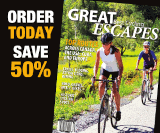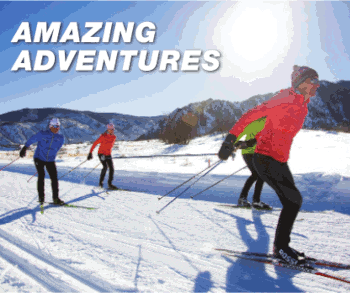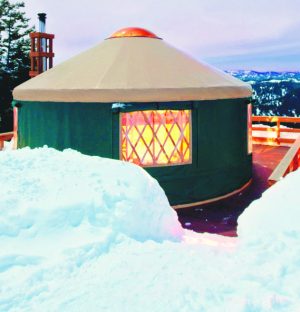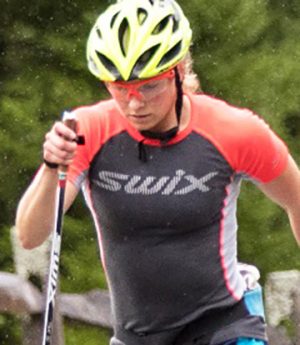June 01, 2011 – Kikkan Randall is one of the best U.S. XC skiing athletes and had her best season so far with four podium results and third place in the Sprint World Cup 2010/11 ranking. FIS Cross-Country news talked to Randall about her successful season, disappointment at the World Championships in Oslo and training plans for next year.
Kikkan, you had your best season so far. Are you satisfied with it looking back now?
Kikkan Randall: Yes, I am very satisfied with the season. While I left Oslo disappointed, I felt strong through the whole season and hitting the podium several times in sprint, with high finishes in both the overall sprint and overall standings, along with some new personal best distance races, were the highlights of my year.
U.S. and Canadian skiers seem to be on the rise. What do you think is the key to your success?
KR: For both the US and Canadian teams we’ve been fortunate to have some strong role models in the recent past that have given our skiers confidence that top results can be achieved from North America. Therefore we now have strong groups of skiers training together and training harder than before, and because we know what is possible, we are more motivated than ever.
You finished third in the Sprint World Cup. How close or far away was the victory?
KR: Coming into the season I hadn’t really put much focus on the overall sprint standings, so it was a nice surprise to take the lead after Liberec. For the remainder of the season I skied my heart out trying to stay as the leader. I still have some work to do on my classic sprinting, but I am excited to be in the fight for the crystal globe over the next seasons.
What was your most difficult moment and the most beautiful one this past season?
KR: The most difficult moment of the season was falling in the quarterfinals in the sprint in Oslo and literally watching my dream ski away with the pack. I had put so much effort and energy into the preparation to fight for the gold in the sprint and it was really hard to have my day end early without really getting the chance to give it what I had. My most beautiful moment was just a few days before that, winning the sprint in Drammen after a month away from the World Cup. It gave me a surge of confidence that everything was on track for Oslo and the atmosphere there was great.
After the end of the season how did you recuperate?
KR: Shortly after I returned home at the end of the season, my training partner from last summer Ella Gjomle Berg, and her husband came to visit Alaska for 10 days. We were on the ultimate quest for powder in the backcountry and the best American burger by night. Then after their trip, my husband and I headed to Maui for 10 days with our road bikes. It was a busy spring but very relaxing to do some different things away from ski racing.
You mentioned Maui, how was it?
KR: Maui was the perfect end of season vacation. My husband and I brought our road bikes, so we got a good tour of the island from our bikes, and just enjoyed the warmth and low-key atmosphere.
When did you officially start your off-season training period and how does your program look going forward?
KR: I officially started back to training on May 2nd. My club team in Alaska likes to kick off the new year with a team camp. The skiing north of town was still in excellent shape so we logged some great hours on snow, plus getting back into roller skiing and back into the gym. It was a really fun week to get back into the groove with my teammates and although I was a little tired by the end of the week, it was a great start. Now I am down in Bend, Oregon at our first US Ski Team camp of the summer. We’ve been skiing a ton and we’re really excited about the group of athletes we have training together. We are doing workouts with the Canadian team as well.
Are you going to introduce some new features in your summer training?
KR: I made some changes to my training last summer and they worked pretty well, so I plan to do a lot of the same. I would like to continue to work on my double-pole durability, so some long classic skis will also be in the plan.
How does your off-season training regime look like and how often do you meet with the US National Team?
KR: During the off-season, I will do most of my training in Alaska with my club team and then leave for a few camps. I have a strong training group in Alaska and we have renewed momentum on the US women’s team, so there will be lots of good training partners. I am also excited to spend a couple weeks in Sweden in June, training with some of the Swedish National Team women. My teammate Liz Stephen will be joining me and we look forward to training with some fast women and in some new places. After we get back from Sweden, we are having a joint US-Canada women’s camp up at home in Alaska, where we’ll do half the camp dryland and half the camp at our glacier training facility.
Would you say your successes brought more attention to cross-country skiing in the U.S.? What can be done to improve the status of cross-country skiing in your country?
KR: Attention has steadily been building for our team in the USA thanks to results from several of our top skiers. It started with Andy Newell’s podium in 2006 and has continued with several of Kris Freeman’s top distance results and my podiums as well. The coolest part of it all is seeing the new motivation and confidence in our younger skiers. It’s like a door has been opened and now we have more skiers than we’ve ever had with big ambitions for the World Cup. Americans love to see winners, so if we can keep getting big results, I think our visibility and popularity in the US will continue to grow. It’s pretty cool to be competing in a sport where the history books are still wide open.
You are very active in the athlete commission. What are your goals there?
KR: The athlete commission is very important. The athletes are major stakeholders in the process and we need to make sure that our voices are heard and that information from FIS is communicated back to the athletes. For Sami and I, our goal is to create a system of communication amongst all the cross-country athletes so that concerns and ideas can be brought to the decision makers at FIS.
We are close to identifying representatives for each country and have made solid progress with our Facebook group and online surveys. While the athletes don’t have official voting rights yet, the Cross-Country Committee has been very welcoming of our presence at the meetings and have been looking to us for feedback. Each year we are improving this relationship and I am very optimistic about our partnership in the future.
For me personally, being the athlete representative has allowed me to get to know my fellow racers better and I believe the creative power of the athletes is an untapped resource that we can really utilize in the future if we can continue to get buy in from the athletes.






![National camp action [P]...](https://skitrax.com/wp-content/uploads/2019/08/Duluth-4-2019-08-08-at-10.46.51-AM-300x246.png)
![Matt Liebsch on the CXC Elite Team [P] CXC...](https://skitrax.com/wp-content/uploads/2019/08/Matt-Liebsch-CXC.2-525x700.4-300x267.jpg)
![Dan LaBlanc [P]...](https://skitrax.com/wp-content/uploads/2019/08/Dan-LaBlanc-img_1855.3.jpg)

![Kikkan Randall (USA) wins her second WCup in Drammen. [P] Nordic Focus](http://skitrax.com/wp-content/uploads/2011/06/Randall200211ah001.2.jpg)
![Sprint Cup final podium (l-r) Arianna Follis 2nd, Petra Majdic 1st, Kikkan Randall 3rd. [P] Nordic Focus](http://skitrax.com/wp-content/uploads/2011/06/Sprint-Pod-200311mf539.2.jpg)

![Randall is elated with her first WCup last season in Liberec. [P] Nordic Focus](http://skitrax.com/wp-content/uploads/2011/06/Randall150111mf080.2.jpg)
June 2nd, 2011 at 10:56 pm
Great season, Kikkan! You should be proud, because you have proven yourself to be one of the world’s best skiers. We were all disappointed about Oslo, but racing is unpredictable. Crazy stuff happens. You’re inspiring the younger women to work hard and dream big, and that’s wonderful. Your distance results really show the hard work you have done and how you’ve become a complete skier. Chapeau to you!